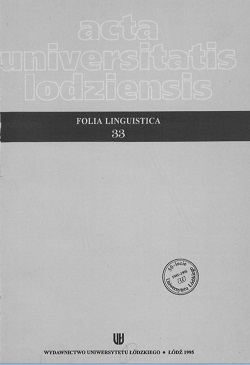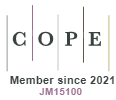Łączliwość składniowa czasowników oznaczających przekazywanie informacji
DOI:
https://doi.org/10.18778/0208-6077.33.04Abstrakt
The aim of this article is to examine the syntactic government of a group of verbs denoting transmission of information.
The verbs under analysis optionally connote personal noun (personal pronoun) having the function of a sender of some information (in other words, of the first participant of a speech act, e.g.: Janek mówi - John says.). These verbs connote also, though by no means always, personal noun (personal pronoun) having the function of a receiver of information (in other words, of the second participant of a speech act, e.g.: Janek poinformował kolegę. – John informed a friend.). The second participant of a speech act is, in most cases, „passive” and is usually expressed by Accusative (powiadomić kogo – to inform somebody) or by Dativ, (powiedzieć komu – to tell somebody), as well as by numerous prepositional phrases (mówić do kogo – to speak to somebody; wołać na kogo – to call to somebody; zwierzać się przed kim – to confide in somebody). The second participant of a speech act can as well be „active” , that is take part in a conversation being either a sender or a receiver (dyskutować z kimś – to discuss something with somebody; rozmawiać między sobą – to talk between one another).
Apart from the personal elements, the analysed verbs also optionally connote impersonal elements pointing out to the contents of the speech. These contents can be expressed by Accusative (mówić głupstwa – to talk nonsense) and Genitive (nagadać bzdur – to talk a lot of nonsense) or by various prepositional phrases (dyskutować o czym – to discuss something; deliberować nad czym – to deliberate upon/over something; zwierzać się z czego – to confide something to somebody).
Pobrania
Pobrania
Opublikowane
Jak cytować
Numer
Dział
Licencja

Utwór dostępny jest na licencji Creative Commons Uznanie autorstwa – Użycie niekomercyjne – Bez utworów zależnych 4.0 Międzynarodowe.










